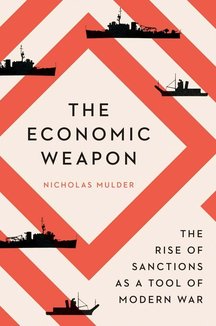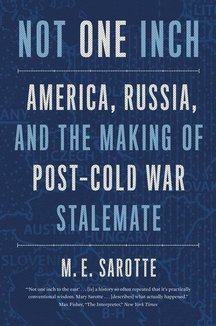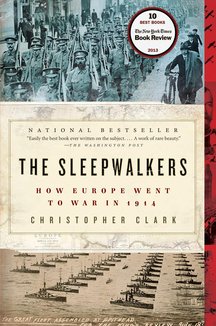Recommended Books

The Economic Weapon: The Rise of Sanctions as a Tool of Modern War
Author:
Nicholas Mulder
ISBN 13:
978-0300270488
The first international history of the emergence of economic sanctions during the interwar period and the legacy of this development A Foreign Affairs Best Book of 2022 “Valuable . . . offers many lessons for Western policy makers today.”—Paul Kennedy, Wall Street Journal “The lessons are sobering.”— The Economist Economic sanctions dominate the landscape of world politics today. First developed in the early twentieth century as a way of exploiting the flows of globalization to defend liberal internationalism, their appeal is that they function as an alternative to war. This view, however, ignores the dark paradox at their core: designed to prevent war, economic sanctions are modeled on devastating techniques of warfare. Tracing the use of economic sanctions from the blockades of World War I to the policing of colonial empires and the interwar confrontation with fascism, Nicholas Mulder uses extensive archival research in a political, economic, legal, and military history that reveals how a coercive wartime tool was adopted as an instrument of peacekeeping by the League of Nations. This timely study casts an overdue light on why sanctions are widely considered a form of war, and why their unintended consequences are so tremendous.

Not One Inch: America, Russia, and the Making of Post-Cold War Stalemate (The Henry L. Stimson Lectures Series)
Author:
M. E. Sarotte
ISBN 13:
978-0300268034
A leading expert on foreign policy reveals how tensions between America, NATO, and Russia transformed geopolitics ● A Foreign Affairs Best Book of 2021 and winner of the Pushkin House Book Prize “Sarotte has the receipts, as it were: her authoritative tale draws on thousands of memos, letters, briefs, and other once secret documents—including many that have never been published before—which both fill in and complicate settled narratives on both sides.”—Joshua Yaffa, New Yorker “The most engaging and carefully documented account of this period in East-West diplomacy currently available.”—Andrew Moravcsik, Foreign Affairs Not one inch. With these words, Secretary of State James Baker proposed a hypothetical bargain to Soviet leader Mikhail Gorbachev after the fall of the Berlin Wall: if you let your part of Germany go, we will move NATO not one inch eastward. Controversy erupted almost immediately over this 1990 exchange—but more important was the decade to come, when the words took on new meaning. Gorbachev let his Germany go, but Washington rethought the bargain, not least after the Soviet Union’s own collapse in December 1991. Washington realized it could not just win big but win bigger. Not one inch of territory needed to be off limits to NATO. On the thirtieth anniversary of the Soviet collapse, this book uses new evidence and interviews to show how, in the decade that culminated in Vladimir Putin’s rise to power, the United States and Russia undermined a potentially lasting partnership. Prize-winning historian M. E. Sarotte shows what went wrong.

The Sleepwalkers: How Europe Went to War in 1914
Author:
Christopher Clark
ISBN 13:
978-0061146664
“A monumental new volume. . . . Revelatory, even revolutionary. . . . Clark has done a masterful job explaining the inexplicable.” — Boston Globe One of The New York Times Book Review ’s 10 Best Books of the Year • Winner of the Los Angeles Times Book Prize (History) Historian Christopher Clark’s riveting account of the explosive beginnings of World War I. Drawing on new scholarship, Clark offers a fresh look at World War I, focusing not on the battles and atrocities of the war itself, but on the complex events and relationships that led a group of well-meaning leaders into brutal conflict. Clark traces the paths to war in a minute-by-minute, action-packed narrative that cuts between the key decision centers in Vienna, Berlin, St. Petersburg, Paris, London, and Belgrade, and examines the decades of history that informed the events of 1914 and details the mutual misunderstandings and unintended signals that drove the crisis forward in a few short weeks. Meticulously researched and masterfully written, The Sleepwalkers is a dramatic and authoritative chronicle of Europe’s descent into a war that tore the world apart.